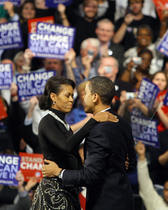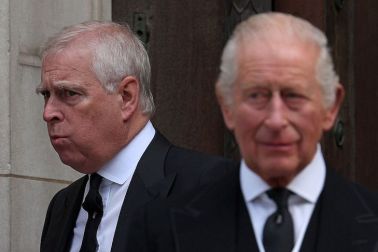“we can only think of three races in which the public polls and the final result were SO off, and they all involved African-American candidates: Bradley’s ’82 gubernatorial campaign in California, Doug Wilder’s surprisingly narrow ’89 victory for Virginia governor, and Harvey Gantt’s surprise loss for North Carolina Senate. There is no poll question we can find that can truly measure this phenomenon. But African-Americans are thinking this, and the difference between Iowa and New Hampshire is a voting curtain: Democrats didn’t have one in Iowa; they had one in New Hampshire.” The exit polls suggest a simpler explanation: there is no reason why the Bradley effect would be present among older white women (Clinton’s base) and not older white men (who voted for Obama). There is no reason unrelated to gender that would cause a demographic split like the ones shown in the exit polls, which, incidentally, turned out to be fairly accurate.”  The debate over whether the reluctance of white voters to support a black candidate once in the privacy of the voting booth is what explains Obama’s loss is raging here in New Hampshire. First Read lays out the case,
The debate over whether the reluctance of white voters to support a black candidate once in the privacy of the voting booth is what explains Obama’s loss is raging here in New Hampshire. First Read lays out the case,
I’m still unconvinced. As Marc Ambinder points out, “
Having slept on it, my take is that there is something more subtle at work. In Iowa caucusing is a very public affair and a social activity. At the one I went to many people had come with their neighbours, arranged to meet up with friends there and the like: this helped Obama drive turnout among both first-time caucus goers and youngsters. The public nature of it also deterred people from having second-thoughts; meaning that Obama’s support in Iowa was more locked down than in New Hampshire. Finally, there was the fact that you could see who was supporting which candidate. This definitely helped Obama at the Caucus I was at as people wanted to be where the energy was, call it the cool kids factor.
After last night, there’s one purely anecdotal point that strikes me as interesting. In Iowa, folk would bring up the race question and discuss whether a black man was really electable. Here, I never heard it mentioned. I presumed that was because Iowa, which is overwhelmingly white, had appeared to settle that question. But looking back I wonder whether it is not due to the more strained racial history in this part of the States.
PS One of the events that people are citing to explain Hillary’s win is the sexist abuse she received at a rally on election eve. If the roles had been reversed and it had been Obama being racially abused, I expect that he would have won in the predicted landslide.







Comments